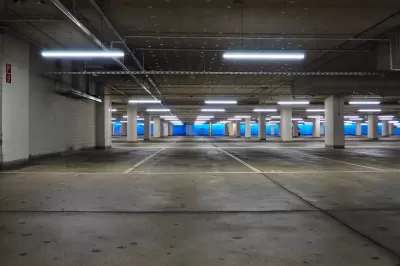The zoning change will significantly reduce the cost of building affordable housing developments.

The Denver City Council has approved a change to the city's zoning code that reduces minimum parking requirements for affordable housing developments, reports Daliah Singer. "Among other things, the just-updated code lowers the 'affordable housing alternative minimum parking ratio' for affordable housing projects in any district to 0.1, or one spot for every 10 units. It also upped the applicable AMI from 40 percent to 60 percent to encompass more housing."The update comes as an acknowledgement of the pivotal role parking requirements play in housing affordability and the vast number of unused parking spaces in the city's housing developments. A December 2020 study found that income-restricted properties provide, on average, "50 percent more parking than residents use." Another audit of affordable and supportive housing in the city found that "Denver’s zoning code required 5.5 times more parking than was needed."
The excess isn't just wasted space, Singer says. "Experts say parking is one of the most significant barriers to affordable housing projects both locally and across the country, sidelining or completely halting in-the-works projects because developers couldn’t make the zoning-required parking work." One parking space costs, on average, "between $20,000 and $30,000 to construct and maintain. The Shopworks/Fox Tuttle study valued the cost of unused parking at $9,284,000—the equivalent cost to build an entire 40-unit affordable housing property."
Advocates of the zoning change hope it will inspire other cities to take similar actions. In Denver, "[t]he change is having an immediate impact: Charity’s House Apartments, a supportive housing complex in Five Points that Shopworks is involved with and had been halted for at least six months due to parking issues, is now able to break ground."
FULL STORY: Affordable Housing in Denver Just Got a Big Boost

Manufactured Crisis: Losing the Nation’s Largest Source of Unsubsidized Affordable Housing
Manufactured housing communities have long been an affordable housing option for millions of people living in the U.S., but that affordability is disappearing rapidly. How did we get here?

Americans May Be Stuck — But Why?
Americans are moving a lot less than they once did, and that is a problem. While Yoni Applebaum, in his highly-publicized article Stuck, gets the reasons badly wrong, it's still important to ask: why are we moving so much less than before?

Research Shows More Roads = More Driving
A national study shows, once again, that increasing road supply induces additional vehicle travel, particularly over the long run.

Which US Rail Agencies Are Buying Zero-Emissions Trains?
U.S. rail agencies are slowly making the shift to zero-emissions trains, which can travel longer distances without refueling and reduce air pollution.

San Diego School District Approves Affordable Housing Plan
The district plans to build workforce housing for 10 percent of its employees in the next decade and explore other ways to contribute to housing development.

Lawsuit Aims to Stop NYC’s ‘City of Yes’ Zoning Reforms
A lawsuit brought by local lawmakers and community groups claims the plan failed to conduct a comprehensive environmental review.
Urban Design for Planners 1: Software Tools
This six-course series explores essential urban design concepts using open source software and equips planners with the tools they need to participate fully in the urban design process.
Planning for Universal Design
Learn the tools for implementing Universal Design in planning regulations.
City of Moreno Valley
Institute for Housing and Urban Development Studies (IHS)
City of Grandview
Harvard GSD Executive Education
NYU Wagner Graduate School of Public Service
City of Cambridge, Maryland
Newport County Development Council: Connect Greater Newport





























